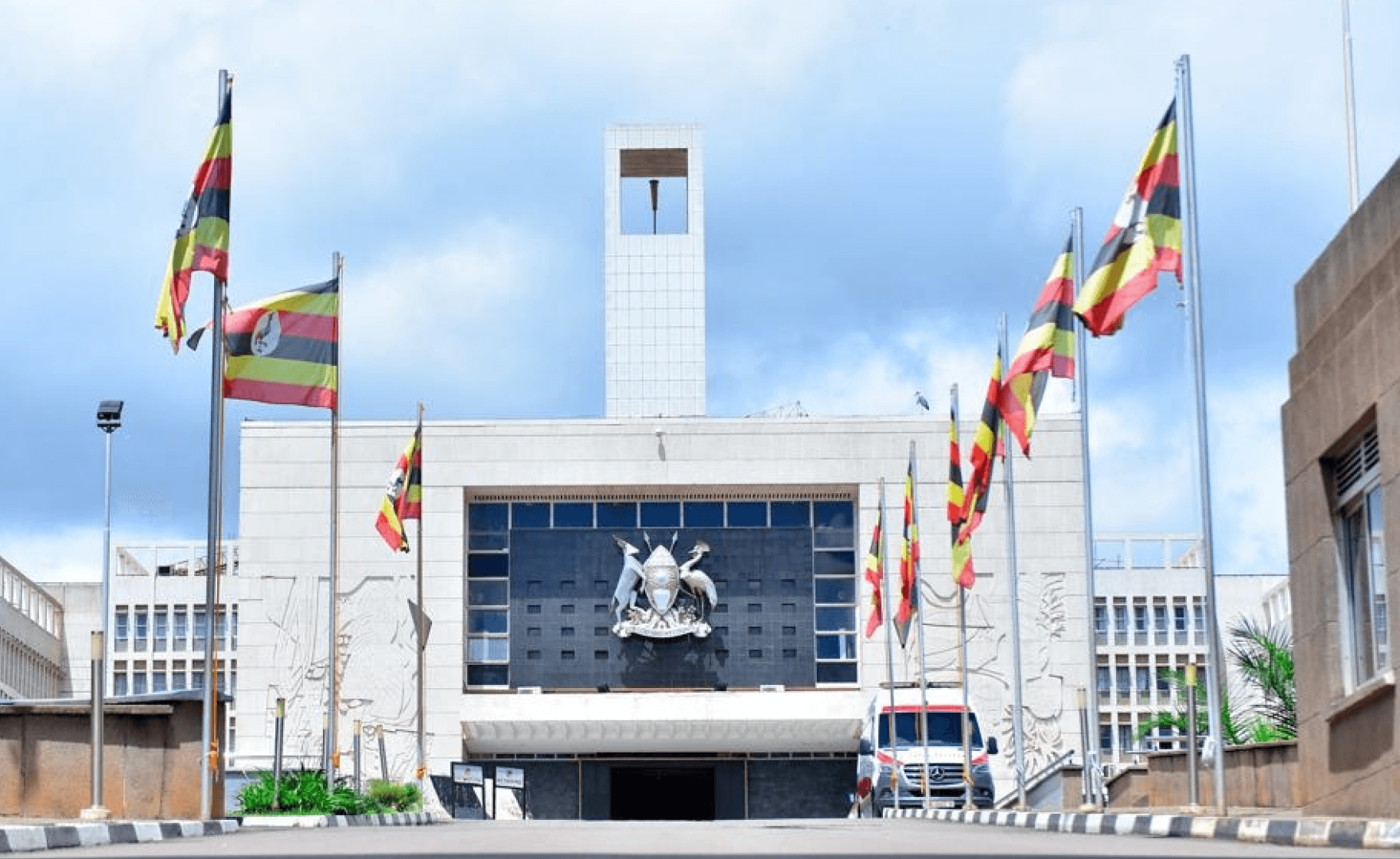From Negligence to Malice: How the Raine Amendment Re-wires Liability, Damages, and Defense Strategy for…

Military Courts for Civilians? Examining Uganda’s Controversial Defence Bill (Amendment), 2025
May 21, 2025 12:23 pm
Are Military Courts for Civilians? Examining Uganda’s Controversial Defence Bill (Amendment), 2025—a legal turning point or a threat to justice? As Uganda moves to expand military court jurisdiction over civilians, pressing questions arise: Does this uphold national security, or erode fundamental rights? Our legal analysis unpacks the implications of this contentious amendment, weighing its potential impact on due process, civil liberties, and the rule of law.
Balancing National Security Imperatives with Constitutional Guarantees
The recent passage of the Uganda Peoples’ Defence Forces (Amendment) Bill, 2025, marks a significant departure from conventional civilian adjudication. The Bill permits—under defined circumstances—the trial of civilians by military courts, a change that proponents frame as a necessary response to evolving security threats. Yet, critics warn that extending military jurisdiction risks undermining the foundational principles of due process and judicial independence. This opinion examines the Bill’s provisions through the lens of historical case law, international jurisprudence, and comparative legal practices.
I. Overview of the Bill’s Reform Provisions
The Bill introduces sweeping reforms within Uganda’s military justice system. Key measures include:
- Expanded Jurisdiction: Civilians suspected of acquiring arms, masquerading as militants, or collaborating with military personnel may be tried by military courts. Although intended to target specific “military-related offences,” this provision has raised concerns of overreach.
- Institutional Structure: The Bill redefines the chain of courts martial—from Unit Court Martial through Division and General Courts Martial, with a final review by the Supreme Court. This restructuring also includes the creation of a Directorate of Military Prosecutions to professionalize military adjudication.
- Safeguards: A noteworthy safeguard is the prohibition against executing a death sentence before it is confirmed by the Supreme Court, reflecting an intent to insert an extra judicial review in capital cases.
These changes, while marketed as modernizations intended to remedy past constitutional defects (as evidenced by the Supreme Court’s decision in Attorney General vs. Hon. Michael A. Kabaziguruka), present a controversial recalibration of legal jurisdiction in matters of national security.
II. Constitutional and Legal Challenges
Central to the debate is the tension between enhanced national security measures and the preservation of civil liberties. Historically, military tribunals have been invoked under exceptional circumstances. For instance, Ex parte Quirin (1942) upheld the use of military commissions for enemy combatants during World War II—but that decision was strictly circumscribed to wartime exigencies, not a general rule to subject civilians to military adjudication in peacetime. [i]
A more contemporary U.S. example is found in the controversial case involving military jurisdiction over a civilian contractor, discussed in a Lawfare analysis. Although the Court of Appeals for the Armed Forces ultimately upheld the military commission, the case divided opinions on its appropriateness and underlying rationale. [ii] Such examples illustrate that even in jurisdictions that have embraced military tribunals, their application to civilians remains hotly contested. Critics in the Ugandan debate fear that the Bill, by resurrecting provisions previously struck down as unconstitutional, risks eroding judicial independence and violating natural justice principles—concerns echoed by dissenting legislators in the current parliamentary session.
Furthermore, the conflation of judicial and prosecutorial roles within the newly proposed Military Courts Department amplifies apprehensions about fairness and oversight. International bodies such as the International Commission of Jurists have long maintained that the right to a fair trial is compromised when civilians are tried by military bodies subject to executive influence.[iii]
III. Historical and Comparative Perspectives
A review of military tribunals worldwide reveals a complex legacy. Historical patterns—outlined in reports such as “Military Tribunals: Historical Patterns and Lessons”—show that while military tribunals can be justified during wartime or in extraordinary circumstances, their extension to domestic, civilian populations has almost universally provoked controversy.i
Comparative analyses further underline divergent approaches. An SSRN paper on military trials of civilians reveals that jurisdictions ranging from the United States to certain European states have imposed strict limits on when and how civilians may be subjected to military justice. For example, several European nations have reformed or even integrated military judicial functions into their civilian courts to ensure robust oversight and protect impartiality.[iv] Similarly, studies by organizations such as DCAF (Geneva Centre for Security Sector Governance) emphasize that transparent oversight and clear legal boundaries are essential if military tribunals are to operate without infringing on fundamental human rights.[v]
Across these contexts, the concept of “exceptional circumstances” remains critical. In Uganda’s case, the absence of a narrowly tailored definition for such circumstances leaves room for subjective interpretation, potentially paving the way for misuse and the further erosion of the rule of law.
IV. Policy Recommendations and Reflections
Given the gravity of the issues at hand, any move to extend military jurisdiction over civilians must proceed with caution. The following measures are advisable:
- Clarify “Exceptional Circumstances”: Legislatures should adopt a precise, narrow definition to restrict the operation of military tribunals solely to situations that genuinely require extraordinary measures.
- Strengthen Oversight Mechanisms: Judicial appointments for military courts must involve independent civilian actors—such as recommendations from the Judicial Service Commission—to shield the process from overt executive or military influence. This approach aligns with best practices documented in various European reforms.[vi]
- Ensure Procedural Safeguards: The separation between prosecutorial and judicial functions must be scrupulously maintained, together with an independent appellate review mechanism, to protect natural justice.
- Comparative Learning: Uganda should consider lessons from other democracies where military tribunals have been phased out or absorbed into the civilian system, ensuring that national security imperatives do not come at the cost of basic civil liberties.[iv] [v]
Balancing national security with the rule of law is no small task. Historical and international cases remind us that overreaching military jurisdiction can set a dangerous precedent—one that potentially paves the way for authoritarian practices, as some dissenters in Parliament ominously suggest.
V. Conclusion
The Uganda Peoples’ Defence Forces (Amendment) Bill, 2025 presents a bold, if contentious, blueprint for addressing security challenges. However, the extension of military jurisdiction over civilians—notwithstanding its intended limited scope—risks undermining constitutional guarantees and the long-established norms of judicial independence and fairness. By drawing on historical precedents such as Ex parte Quirin and scrutinizing modern comparative analyses, it becomes clear that any deviations from civil adjudication must be accompanied by robust safeguards and transparent oversight.
The ultimate test will be whether the Bill’s reforms can secure national security without sacrificing the principles that form the bedrock of a just society. In this delicate balance lies the future trajectory of Uganda’s legal and constitutional order.
This opinion post is intended to serve as a catalyst for informed debate and critical inquiry. It highlights both the potential merits and inherent risks of expanding military jurisdiction over civilians and underscores the need for careful, measured reform in balancing security and human rights.
[i] July 9, 2004 CRS Report for Congress-Military Tribunals: Historical Patterns and Lessons
[ii] Friday, May 3, 2013 Steve Vladeck | Military Jurisdiction Over Civilians: Why the Supreme Court Should Grant Cert. in <em>Ali</em>
[iii] 2018 ICJ | The judgment of civilians by Military Tribunals
[iv] January 20, 2024 Muhammad Hasnain Ali | Comparative Analysis: Military Trials of Civilians Across Diverse Jurisdictions
[v] Rachel E. VanLandingham, Grazvydas Jasutis, Kristina Cernejute – DCAF | Military Justice: A comparative study of parliamentary oversight in Euro-Atlantic countries
[vi] Daniela Cotelea, Alberto Pineda Alcántara, Cristina Tempera, Medeleine Brach, Cedric Foisseau and Giuseppe A. Ira under the super- vision and guidance of Mr Mario Blokken, Director of the Permanent Secretariat | The Role of Military Courts Across Europe: A Comparative Understanding of Military Justice Systems
If you like this opinion “Are Military Courts for Civilians? Examining Uganda’s Controversial Defence Bill (Amendment), 2025”, check back here for more legal news
Contact Information
Stabit Advocates
Website: www.stabitadvocates.com
Email: info@stabitadvocates.com
Phone: +250 789 366 274
For more information or to discuss your case, please contact us at www.stabitadvocates.com.
This guide is intended to provide general information and does not constitute legal advice. For specific legal advice tailored to your situation, please consult with a qualified attorney at Stabit Advocates.




This Post Has 0 Comments